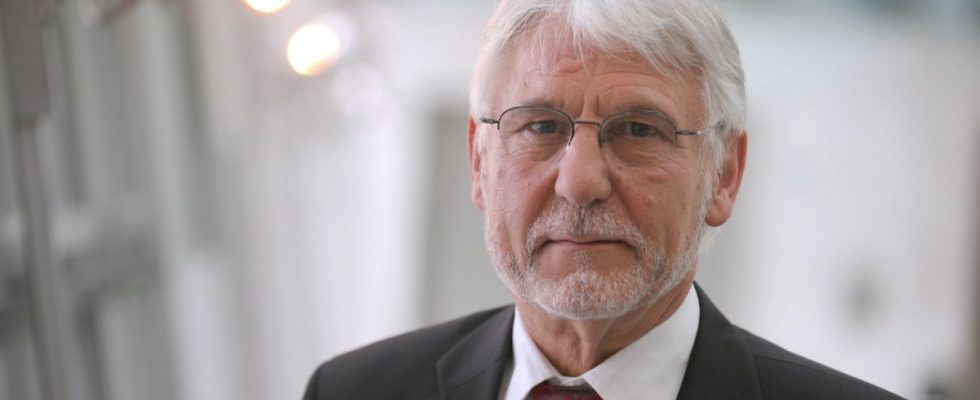On the evening of May 2nd, Gerhard Roth spoke again posthumously. In the regional TV program “Buten und Binnen” from Radio Bremen, he commented on the subject of learning and rather casually issued a warning: “Learning something new is a risk.” At this point in time, perhaps the best-known brain researcher in Germany was no longer alive. He died last week at the age of 80, as has only just become known. He was indeed a risky, perhaps also a radical thinker, because he pointed to the biological basis of the human spirit with a radicalism previously unfamiliar in Germany.
Even as a result of his training, Gerhard Roth was not a crude positivist, with no sense for discussions outside of the laboratory and in the humanities faculties. Rather, Roth first studied musicology, German and philosophy in Münster and Rome, which he completed with a dissertation on the Marxist thinker Antonio Gramsci. Only then did he study biology in Berkeley, among other places, and received his doctorate in 1974 in Münster on a topic in zoology.
is there a me Suddenly the really big questions were being discussed on talk shows and feuilletons
As early as 1976, Roth taught as a professor of behavioral physiology at the University of Bremen, where he later became director of what was then the Institute for Brain Research and rector of the Hanse Science College. As the very successful president of the Studienstiftung des Deutschen Volkes from 2003 to 2011, he might remember a little about his preoccupation with Gramsci, who had championed the intellectual education of the Italian proletariat. Under Roth’s leadership, the number of scholarship holders from the elite foundation doubled, and students from non-academic backgrounds and families with a migration background received particular support.
And the researcher was never too pretentious for the public either, he never avoided a fight. At the latest with the book “The Brain and its Reality” published in 1994 and in numerous other writings, lectures and interviews, he announced the claim of neuroscience to have a say in the interpretation of humans and their deeds. If bioelectric events in the network of neurons lead to decisions, where is there room for free will? And if there is no free will, how can a person be guilty of a violent crime, for example?
Neuroresearchers like Gerhard Roth, supported by the colorful images from brain scanners that were emerging at the time, ensured that the really big questions were discussed in talk shows and feature articles for years: What is the I? does that even exist? How do people decide? Does evil exist? Suddenly the physiology of the brain seemed to form the basis for philosophy, theology, morality, economics. Some of the possible answers offend the human self-image.
Learning can hurt, that’s the risk. Gerhard Roth never shied away.

